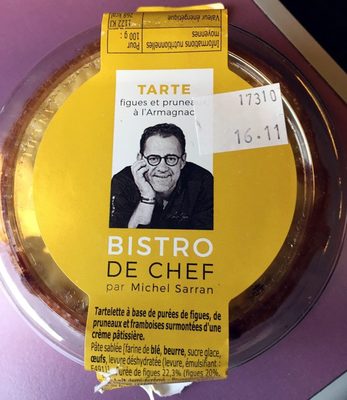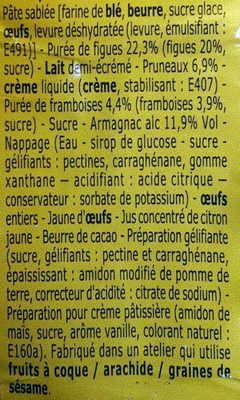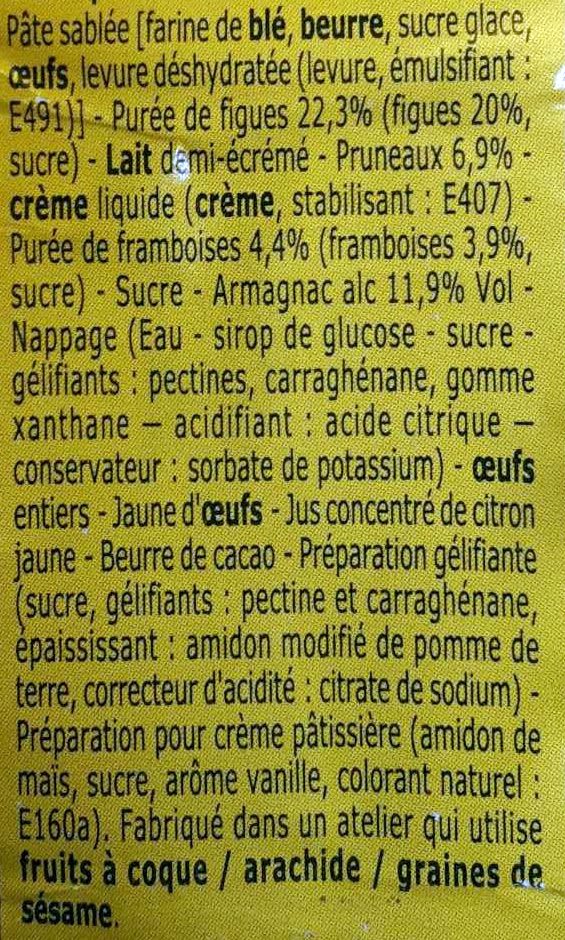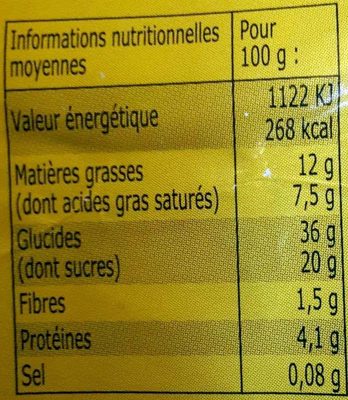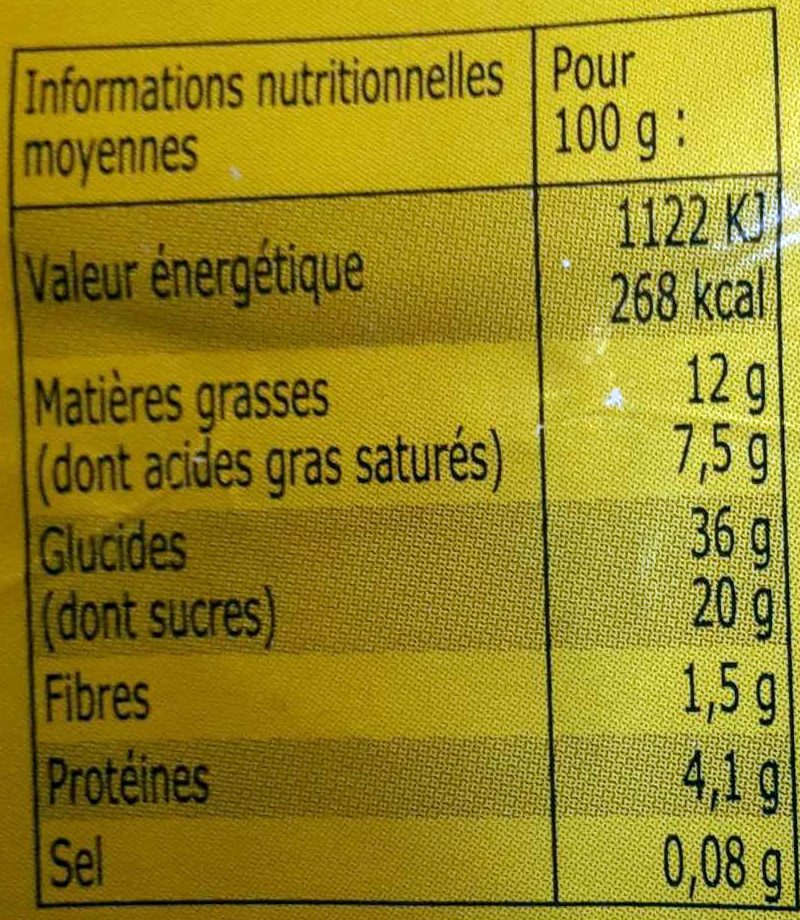Tarte figues et pruneaux à l’Armagnac - Bistro de Chef - 120 g
This product page is not complete. You can help to complete it by editing it and adding more data from the photos we have, or by taking more photos using the app for Android or iPhone/iPad. Thank you!
×
Barcode: 3700579036253 (EAN / EAN-13)
Common name: Tartelette à base de purées de figues, de pruneaux et framboises surmontées d'une crème pâtissière
Quantity: 120 g
Packaging: Fresh
Brands: Bistro de Chef
Categories: Sweet pies, Pies
Manufacturing or processing places: FR 94.017.106 CE
Countries where sold: France
Matching with your preferences
Environment
Packaging
Transportation
Report a problem
Data sources
Product added on by kiliweb
Last edit of product page on by fix-serving-size-bot.
Product page also edited by desan, keragui, lucaa, openfoodfacts-contributors, packbot, quechoisir, yuka.R1pGZlQ2ZzUvcU1reHMwVXBCMzI5TzlReGJXMGRFbWJEODhvSVE9PQ, yuka.WXA4bVRhVWZoUGt2d3ZBQTJEYjY4WW9sM2JXdEREeTJDZk1mSWc9PQ.
